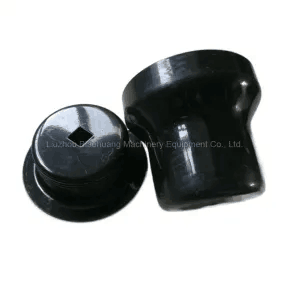Protect Your Pipes: The Importance of Pipe Protectors
Pipes are an integral part of our infrastructure, serving various purposes in residential, commercial, and industrial settings. From delivering water and gas to facilitating sewage disposal, pipes are essential for a functional and hygienic environment. However, pipes are susceptible to damage caused by external factors such as corrosion, impact, and extreme weather conditions. This is where pipe protectors come into play, serving as a crucial safeguard for the longevity and efficiency of our piping systems. In this article, we will explore the importance of pipe protectors and their benefits in ensuring the reliability of our infrastructure.
Protection against Corrosion:
Corrosion is one of the primary threats to the lifespan of pipes. It occurs when metals react with the environment, leading to deterioration and weakening of the pipe material. Pipe protectors act as a barrier between the pipe surface and corrosive elements, preventing direct contact and reducing the risk of corrosion. Whether the pipes are underground, exposed to moisture, or in contact with chemicals, appropriate pipe protectors can significantly extend their service life.

Impact Resistance:
Pipes often face the risk of impact from various sources such as construction activities, heavy machinery, or accidental collisions. These impacts can cause dents, cracks, or fractures, leading to leaks and subsequent costly repairs. By installing pipe protectors, the external impact force is absorbed, minimizing the damage and ensuring the pipes remain intact. Pipe protectors made from durable materials like high-density polyethylene (HDPE) or steel provide an extra layer of protection, safeguarding the pipes from potential accidents.
Thermal Insulation:
Extreme temperatures, whether hot or cold, can affect the performance and durability of pipes. In cold climates, freezing temperatures can lead to pipe bursts, while excessive heat can cause deformation or even melting. Pipe protectors with insulating properties help regulate the temperature within the pipes, preventing freezing or overheating. By maintaining a stable temperature, pipe protectors ensure that the fluid flow remains uninterrupted, minimizing the risk of system failure.
Resistance to Chemicals:
Certain industries, such as chemical manufacturing or wastewater treatment, involve the transportation of corrosive substances through pipes. These chemicals can degrade the pipe material over time, compromising their structural integrity and posing environmental hazards. Pipe protectors designed to resist chemical corrosion provide an added layer of defense, ensuring the pipes can withstand exposure to harsh substances without succumbing to deterioration.
Longevity and Cost Savings:
Investing in pipe protectors may seem like an additional expense, but it is a wise decision in the long run. By preserving the integrity of pipes and reducing the need for frequent repairs or replacements, pipe protectors contribute to significant cost savings over time. Moreover, avoiding pipe failures and subsequent downtime ensures uninterrupted operations, preventing potential losses in productivity and revenue.
Conclusion:
Pipe protectors play a vital role in safeguarding our infrastructure by mitigating risks such as corrosion, impact, extreme temperatures, and chemical exposure. By choosing the appropriate pipe protectors for specific applications, we can ensure the longevity and efficiency of our piping systems. Investing in pipe protectors is a proactive step towards reducing maintenance costs, preventing environmental damage, and promoting the smooth functioning of our residential, commercial, and industrial facilities. So, let's protect our pipes and secure the foundation of our infrastructure for years to come.
221
0
0
All Comments (0)
If you are interested in sending in a Guest Blogger Submission,welcome to write for us!




Comments